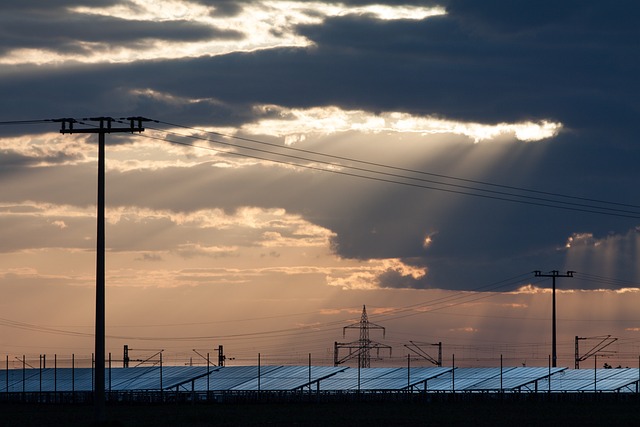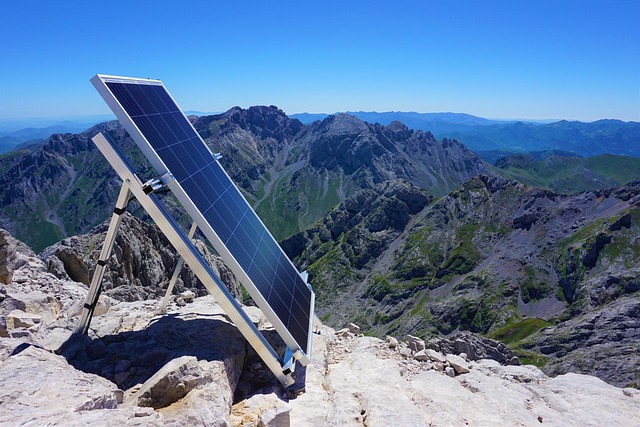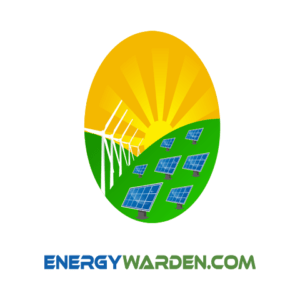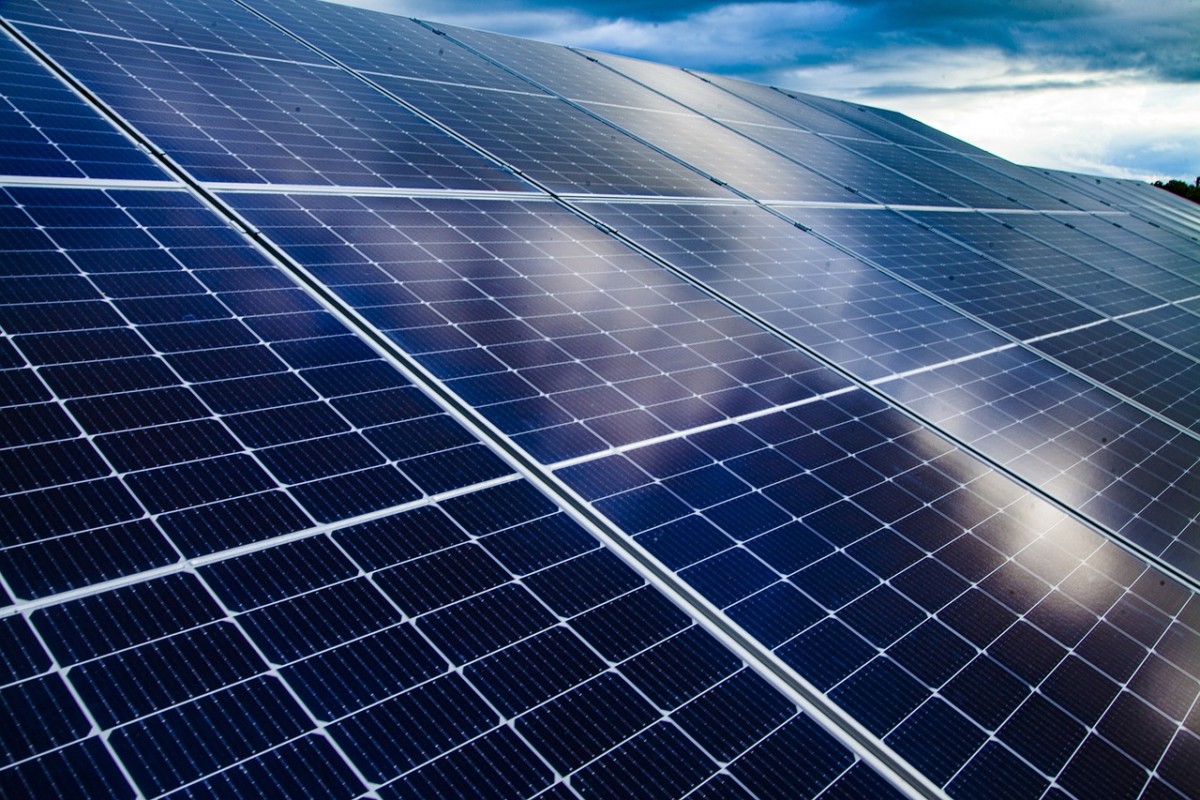Disadvantages and Advantages of Solar Energy
Solar energy is a topic of great interest for many people because it is a renewable energy source that can potentially help to reduce dependence on fossil fuels. Now, let’s discover the Disadvantages and Advantages of Solar Energy.
One advantage of solar energy is that it is a renewable resource, meaning that it will never run out. Another advantage is that solar energy can be used to generate electricity, which can be used in homes and businesses.
Additionally, using solar energy can help to reduce greenhouse gas emissions and air pollution. However, solar energy can also be expensive to install, and it isn’t always reliable since it is dependent on the weather.
What are the Disadvantages of Solar Energy?
Solar energy is a type of renewable energy that comes from the sun. Solar power is one of the most promising forms of alternative energy, but it also has its share of disadvantages.
What is the disadvantages of solar energy? The biggest disadvantage of solar energy is its cost. Solar panels are expensive to install, and it can take years to recoup the initial investment.
Solar panels also require a lot of maintenance, and their efficiency can degrade over time. Cons of solar energy is that it’s intermittent, the sun doesn’t always shine, and solar panels don’t work at night or on cloudy days. This means that solar power can’t be relied upon as a sole source of energy.
Not Ideal If You Plan on Moving House
Solar energy is a great way to save money on your electric bill, but it’s not ideal if you plan on moving house. Plus, Solar panels are expensive to install, and they’re not easy to move. If you do move, you’ll have to leave your solar panels behind or pay to have them reinstalled at your new home.
Solar panels also require a lot of maintenance. You’ll need to clean them regularly to keep them working properly. And, in some cases, you might need to replace parts of your system if they break down. Despite these drawbacks, solar energy is still a good option for many homeowners.
It’s renewable, it’s environmentally friendly, and it can save you money over time. If you’re considering solar energy for your home, weigh the pros and cons carefully before making a decision.
Despite these disadvantages, solar energy has many advantages that make it worth considering as part of a renewable energy portfolio.
What are the Advantages of Solar Energy?
Solar energy is one of the most efficient and eco-friendly forms of renewable energy. Solar panels are able to convert sunlight into electricity, which can then be used to power your home or business. Further, Solar energy has a number of advantages over other forms of energy, including being more affordable and sustainable.
Solar energy is becoming increasingly popular as an alternative to traditional forms of energy. Also, Solar panels are more affordable than ever before, making them a great option for those looking to save money on their electricity bill. Additionally, solar panels are much more environmentally friendly than fossil fuels, as they do not produce any harmful emissions and help to reduce your carbon footprint.
Finally, solar energy is a very sustainable form of energy, as it can be endlessly replenished by the sun. This makes it an ideal long-term solution for our planet’s growing energy needs.
Additionally Solar power is one of the most promising renewable energy sources. It offers a number of advantages over other forms of energy.
Let’s look at some solar energy pros:
- Solar energy systems are free once you have installed the initial equipment which is great for energy independence if this is your goal.
- Solar panels have a very long lifespan and require little maintenance.
- Also, Solar power is environmentally friendly and doesn’t produce greenhouse gases.
- Solar energy can be used to generate electricity or to heat water and air in homes and buildings.
- Plus, Solar power is versatile and can be used in remote areas where other forms of energy are not available.
- The initial cost of solar equipment has dropped significantly in recent years, making it more affordable for homeowners and businesses.
Excess energy from home solar power system

Excess energy from home solar power systems can be both an advantage and a disadvantage. Solar panels absorb sunlight and convert it into electricity. This can be used to power your home, saving you money on your energy bill.
If you have a solar panel system that produces more solar electricity than your household requires (as is common in daytime hours, especially in summer), then you may export the surplus energy to the power grid.
This happens basically like a battery, “feeding” the local grid with clean energy that reduces the number of peak loads on the local grid (saving money for households and businesses). In this circumstance, unused solar power will give you both bill credit and financial incentives to your electric utility.
Net metering
As the cost of solar panels has decreased, the popularity of solar energy has increased. Homeowners and businesses alike are taking advantage of solar energy to save money on their electric bills. Net metering is one way to use solar energy, but it’s not without its disadvantages.
Net metering is a system that allows homeowners and businesses with solar panels to sell their excess electricity back to the grid. The homeowner or business owner essentially becomes their own power plant, generating electricity for themselves and others.
While net metering has its advantages, there are also some drawbacks. First, because you are selling your excess electricity back to the grid, you may not be able to take advantage of time-of-use rates that can lower your overall electric bill.
Second, if you live in the United States the net metering credit is based on the electricity rate in your state at that time. So if you are selling electrical energy to the utility company and not using the energy yourself, you may be selling at a low rate.
What are some common Solar Energy Applications?
Solar power is a renewable resource that can be used in many different ways. Solar energy can be used to generate electricity, to heat water or air, and to power appliances and devices.
Also, Solar energy production can be used to generate electricity in two ways: photovoltaics (PV) and concentrated solar power (CSP). PV uses sunlight to directly generate electricity, while CSP uses mirrors or lenses to concentrate the sun’s rays to produce heat, which is then used to generate electricity.
Did you know? Solar water heating systems use the sun’s energy to heat water for domestic or commercial use. Solar air heating systems work similarly, using solar collectors to capture the sun’s warmth and circulate it through a building. Solar energy can also be used to power appliances and devices, such as solar-powered calculators and watches. I talk about the uses of solar energy more in my article What Are the Uses of Solar Energy?
The sun s energy is captured by solar collectors that are typically made of glass or plastic and are commonly found on rooftops. Solar collectors are around the size of a small table and can be used for domestic or commercial use. The most common type of solar collector is a flat-plate collector which is used to heat water in a solar water heating system.
What is solar energy?
Solar energy is the conversion of sunlight into electricity, either directly using photovoltaics (PV), or indirectly using concentrated solar power (CSP). Solar energy technologies are broadly characterized as either passive solar or active solar depending on how they capture and distribute solar energy.
Active solar techniques include the use of photovoltaic panels and/or solar thermal collectors to harness the energy. Active solar technologies increase the supply of energy and are considered supply-side technologies, while passive solar techniques reduce the need for alternate resources and are generally considered demand-side technologies.
Passive solar techniques include orienting a building to the Sun, selecting materials with favorable thermal mass or light-dispersing properties, and designing spaces that naturally circulate air. Passive solar techniques include orienting a building to the Sun, selecting materials with favorable thermal mass or light-dispersing properties, and designing spaces that naturally circulate air. In both cases, the systems may be used to heat and cool (IAQ) or provide hot water for domestic use or space heating.
The advantages of solar energy are that it is renewable, meaning it will never run out; it is sustainable, meaning it can be used over and over again; and it is clean, meaning it does not produce harmful greenhouse gases when generating electricity.
How does solar energy work?
Solar energy is one of the most popular forms of renewable energy. Interestingly solar panels are made up of photovoltaic solar cells, which convert sunlight into electricity. Solar panels are installed on rooftops or in open spaces, and they can be used to power homes, businesses, and even entire communities. Read my Article How Solar Energy Works for a more in-depth look at how solar energy works.
Solar energy is a clean energy and renewable resource that can help reduce our reliance on fossil fuels. However, solar energy also has some disadvantages. Solar panels can be expensive to install, and they require maintenance over time. Additionally, solar energy is not available 24 hours a day, so it must be stored in batteries for use at night or during cloudy days.
What can solar power be used for in the home?
There are many disadvantages and advantages of Solar Energy. However, with the proper application, solar power can be used for a variety of purposes in the home. Solar power can be used to heat water, produce electricity, and even cool air. With the right system in place, solar power can provide a significant portion of a home’s energy needs.
While there are initial costs associated with installing a solar system, long-term savings can be significant. Solar power is an environmentally-friendly option that is becoming increasingly popular as technology improves and costs decrease.
Consider Your Location

There are several factors to consider when determining if solar energy is the right fit for your home. One of the most important considerations is your location. Solar panels need direct sunlight to work effectively, so homes in northern climates may not get enough sun to make solar a viable option. Additionally, trees or other structures that cast shadows on your property can also impact the amount of sunlight that reaches your solar panels.
Another factor to consider is the angle of your roof. Solar panels need to be installed at a specific angle to maximize their efficiency, so if your roof isn’t positioned correctly, you may not get as much power from your solar panels as you’d like.
What are the disadvantages of solar farms?
Solar farms have many disadvantages that often outweigh the advantages. One of the biggest disadvantages is that they require a lot of space. Solar farms can take up hundreds of acres, which means they are not always practical or possible to build.
They also have a high upfront cost, which can make them difficult to finance. Additionally, solar farms can be difficult to maintain and keep running properly. They may generate less energy than predicted, and they are also vulnerable to extreme weather conditions.
Additionally, solar farms can be an eyesore for some people. This can be especially true when they are located in rural areas. Solar farms also do not always provide a stable source of energy. They may stop working during extremely bad weather conditions or if the sun is not shining.
The environmental impact
Solar power is a clean renewable energy source that has the potential to help reduce greenhouse gas emissions such as carbon dioxide and reliance on fossil fuels which contribute to climate change. However, there are some concerns regarding the impact of solar power on the environment.
For instance, solar panels can be made from toxic materials such as cadmium and lead. The amount of land required to produce solar power from solar farms is a concern. Large areas of land are needed to place the panels. As a result, the area becomes less suitable for farming or other uses. Additionally, rain runoff can carry soil particles into rivers and streams, which can impact water quality.
Solar power can also be used to generate electricity in remote areas where it would be difficult to build traditional power plants.
What is the disadvantages of solar energy?
What are disadvantages of using solar energy? One of the main disadvantages of solar energy is its dependence on weather conditions. Solar panels need direct sunlight in order to generate electricity, so cloudy or rainy days will hamper their effectiveness. Additionally, unless they are paired with a battery system, they can only provide power when the sun is out, meaning that there may be periods of time when no power is available.
Another disadvantage of solar energy is its high upfront costs. Installing a solar panel system can be expensive and may require investment in thousands of dollars to purchase and install the necessary equipment. Though this cost may pay for itself over time once the panels begin producing energy for free, it can still be difficult to come up with the money required at first.
Lastly, solar energy depends on geographic location; not every area receives enough sunlight to make it a viable source of power generation. Places that are located in cloudy regions with shorter daylight hours will find it more difficult – if not impossible – to use solar panels as an effective source of renewable energy. Please share.
Recent Posts
Wind Energy and Its Economic Benefits for Local Communities Firstly wind energy has emerged as a powerful driver of economic development, particularly in local communities. It provides a...
Potential Energy in a Spring: Understanding the Fundamentals
Potential Energy in a Spring Firstly, understanding the potential energy in a spring is fundamental to grasping how energy is stored and transferred in various physical systems. Springs, as...


